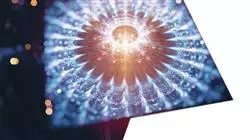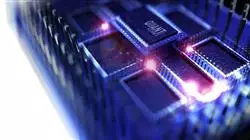University certificate
The world's largest faculty of engineering”
Introduction to the Program
Quantum Computing has arrived to revolutionize the communication sector. Specialize in this constantly evolving industry and achieve success"

Knowledge and specialization in Quantum Computing is a winning bet. It is today and will undoubtedly be even more so in the future. Quantum theory can be applied to various sciences and factors, such as Artificial Intelligence, cryptography, cybersecurity, machine learning, Blockchain, error correction, IoT, biotechnology, medicine, among other areas.
A key area of interest and where Quantum Computing is proving to be most efficient is in the field of Machine Learning. This Postgraduate certificate shows its application in real proactive, predictive and prescriptive problems. Students who acquire knowledge now, in quantum technologies, will be the leaders in programming in the near-term future.
In the course of 6 weeks, the graduates will deepen their understanding of the field of application of Quantum Computing, understanding the industrial benefits it brings, so they will be positioned at the technological forefront and will be able to lead ambitious projects in the present and in the future. In addition, they will have the best study methodology 100% online, which eliminates the need to attend classes in person or to have a predetermined schedule.
Completion of this Postgraduate certificate will place Engineering and Industry 4.0 professionals at the forefront of the latest developments in the sector"
This Postgraduate certificate in Quantum Computing contains the most complete and up-to-date program on the market. The most important features include:
- Case studies presented by experts in Computing Quantum
- The graphic, schematic, and practical contents with which they are created, provide practical information on the disciplines that are essential for professional practice
- Practical exercises where self-assessment can be used to improve learning
- Its special emphasis on innovative methodologies
- Theoretical lessons, questions to the expert, debate forums on controversial topics, and individual reflection assignments
- Content that is accessible from any fixed or portable device with an Internet connection
You are facing an emerging market where, due to its complexity and immaturity, obtaining the right knowledge and advice will give you a competitive advantage in the labor market"
The program includes, in its teaching staff, professionals from the sector who bring to this program the experience of their work, in addition to recognized specialists from prestigious reference societies and universities.
The multimedia content, developed with the latest educational technology, will provide the professional with situated and contextual learning, i.e., a simulated environment that will provide immersive education programmed to learn in real situations.
This program is designed around Problem-Based Learning, whereby the professional must try to solve the different professional practice situations that arise during the academic course. For this purpose, students will be assisted by an innovative interactive video system created by renowned and experienced experts.
Knowledge and specialization in Quantum Computing at TECH is a winning bet"

You will observe the latest advances in Quantum Computing and you will be able to put them into practice"
Why study at TECH?
TECH is the world’s largest online university. With an impressive catalog of more than 14,000 university programs available in 11 languages, it is positioned as a leader in employability, with a 99% job placement rate. In addition, it relies on an enormous faculty of more than 6,000 professors of the highest international renown.

Study at the world's largest online university and guarantee your professional success. The future starts at TECH”
The world’s best online university according to FORBES
The prestigious Forbes magazine, specialized in business and finance, has highlighted TECH as “the world's best online university” This is what they have recently stated in an article in their digital edition in which they echo the success story of this institution, “thanks to the academic offer it provides, the selection of its teaching staff, and an innovative learning method aimed at educating the professionals of the future”
A revolutionary study method, a cutting-edge faculty and a practical focus: the key to TECH's success.
The most complete study plans on the university scene
TECH offers the most complete study plans on the university scene, with syllabuses that cover fundamental concepts and, at the same time, the main scientific advances in their specific scientific areas. In addition, these programs are continuously being updated to guarantee students the academic vanguard and the most in-demand professional skills. In this way, the university's qualifications provide its graduates with a significant advantage to propel their careers to success.
TECH offers the most comprehensive and intensive study plans on the current university scene.
A world-class teaching staff
TECH's teaching staff is made up of more than 6,000 professors with the highest international recognition. Professors, researchers and top executives of multinational companies, including Isaiah Covington, performance coach of the Boston Celtics; Magda Romanska, principal investigator at Harvard MetaLAB; Ignacio Wistumba, chairman of the department of translational molecular pathology at MD Anderson Cancer Center; and D.W. Pine, creative director of TIME magazine, among others.
Internationally renowned experts, specialized in different branches of Health, Technology, Communication and Business, form part of the TECH faculty.
A unique learning method
TECH is the first university to use Relearning in all its programs. It is the best online learning methodology, accredited with international teaching quality certifications, provided by prestigious educational agencies. In addition, this disruptive educational model is complemented with the “Case Method”, thereby setting up a unique online teaching strategy. Innovative teaching resources are also implemented, including detailed videos, infographics and interactive summaries.
TECH combines Relearning and the Case Method in all its university programs to guarantee excellent theoretical and practical learning, studying whenever and wherever you want.
The world's largest online university
TECH is the world’s largest online university. We are the largest educational institution, with the best and widest online educational catalog, one hundred percent online and covering the vast majority of areas of knowledge. We offer a large selection of our own degrees and accredited online undergraduate and postgraduate degrees. In total, more than 14,000 university degrees, in eleven different languages, make us the largest educational largest in the world.
TECH has the world's most extensive catalog of academic and official programs, available in more than 11 languages.
Google Premier Partner
The American technology giant has awarded TECH the Google Google Premier Partner badge. This award, which is only available to 3% of the world's companies, highlights the efficient, flexible and tailored experience that this university provides to students. The recognition as a Google Premier Partner not only accredits the maximum rigor, performance and investment in TECH's digital infrastructures, but also places this university as one of the world's leading technology companies.
Google has positioned TECH in the top 3% of the world's most important technology companies by awarding it its Google Premier Partner badge.
The official online university of the NBA
TECH is the official online university of the NBA. Thanks to our agreement with the biggest league in basketball, we offer our students exclusive university programs, as well as a wide variety of educational resources focused on the business of the league and other areas of the sports industry. Each program is made up of a uniquely designed syllabus and features exceptional guest hosts: professionals with a distinguished sports background who will offer their expertise on the most relevant topics.
TECH has been selected by the NBA, the world's top basketball league, as its official online university.
The top-rated university by its students
Students have positioned TECH as the world's top-rated university on the main review websites, with a highest rating of 4.9 out of 5, obtained from more than 1,000 reviews. These results consolidate TECH as the benchmark university institution at an international level, reflecting the excellence and positive impact of its educational model.” reflecting the excellence and positive impact of its educational model.”
TECH is the world’s top-rated university by its students.
Leaders in employability
TECH has managed to become the leading university in employability. 99% of its students obtain jobs in the academic field they have studied, within one year of completing any of the university's programs. A similar number achieve immediate career enhancement. All this thanks to a study methodology that bases its effectiveness on the acquisition of practical skills, which are absolutely necessary for professional development.
99% of TECH graduates find a job within a year of completing their studies.
Postgraduate Certificate in Quantum Computing
Quantum computing is based on the principles of quantum mechanics. With it, it is expected that complex problems in areas such as cryptography, artificial intelligence and molecular simulation can be solved. Although it is still under development, its potential is enormous. Being a complex and constantly growing field, TECH Global University has developed the most complete and up-to-date Postgraduate Certificate in Quantum Computing in the educational panorama. We have adjustable schedules, state-of-the-art interactive digital content and a team of highly experienced professors, which makes us a high-level professionalization, just a click away. As you progress through this program, you will delve into the fundamentals of quantum theory, quantum programming, quantum algorithm design, and the implementation of quantum processes in physical systems.
Get your qualification at the world's largest online university
Quantum computing is a discipline based on the use of the principles of quantum physics for the development of information and communication technologies. These principles enable the creation of algorithms and computational processes that are significantly faster and more efficient than classical computational processes. By enrolling in this TECH program, you will not only receive the most complete content on the market, but you will also have at your disposal a unique methodology of its kind. All the pedagogical content will be available on a virtual teaching platform, 24 hours a day, which will allow you to take the postgraduate certificate at the times that best suit you. Upon completion of the program, you will be able to work in various research and development contexts, including research laboratories, technology companies or academic institutions.







